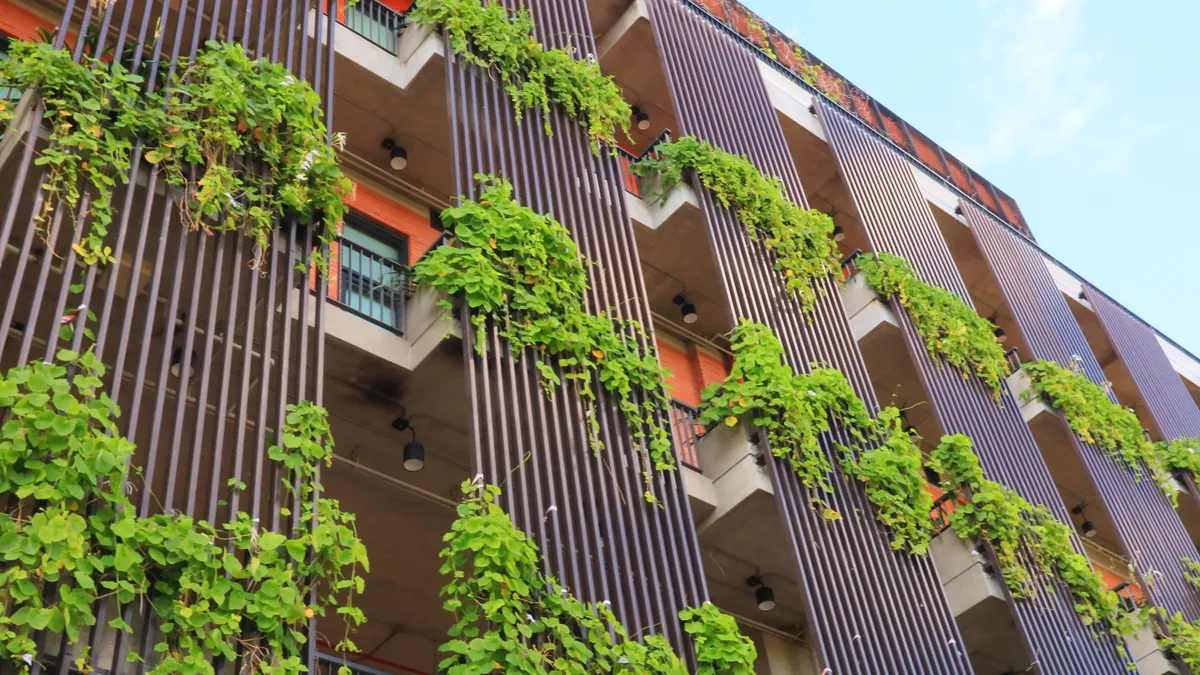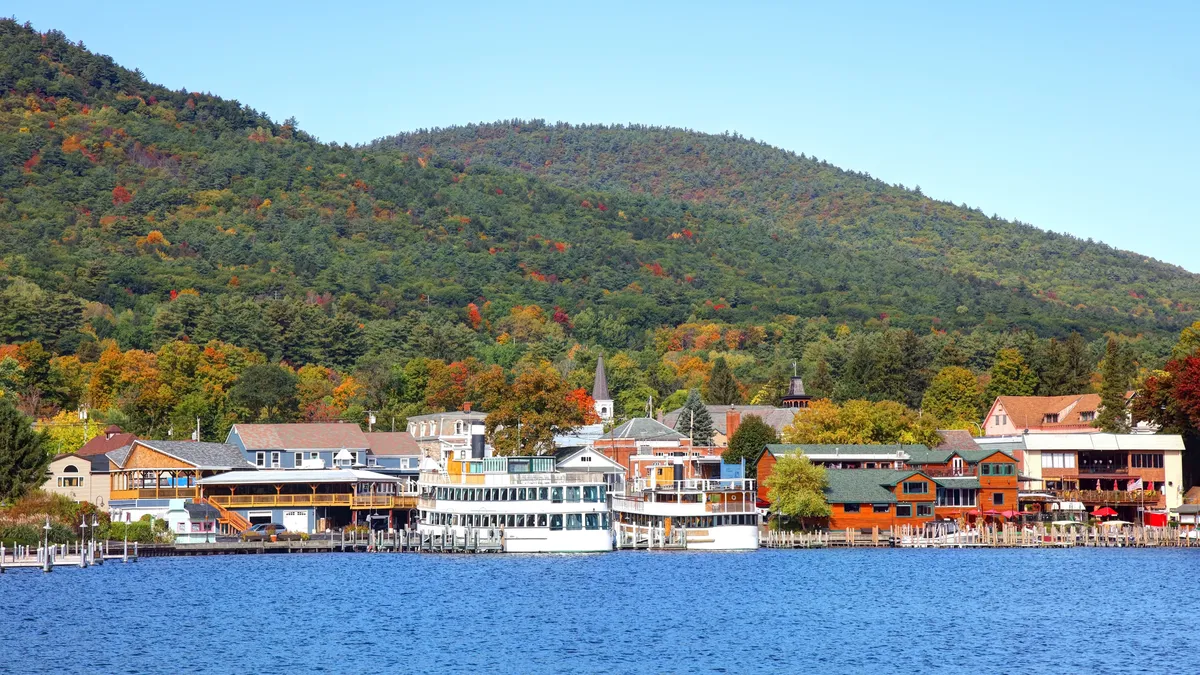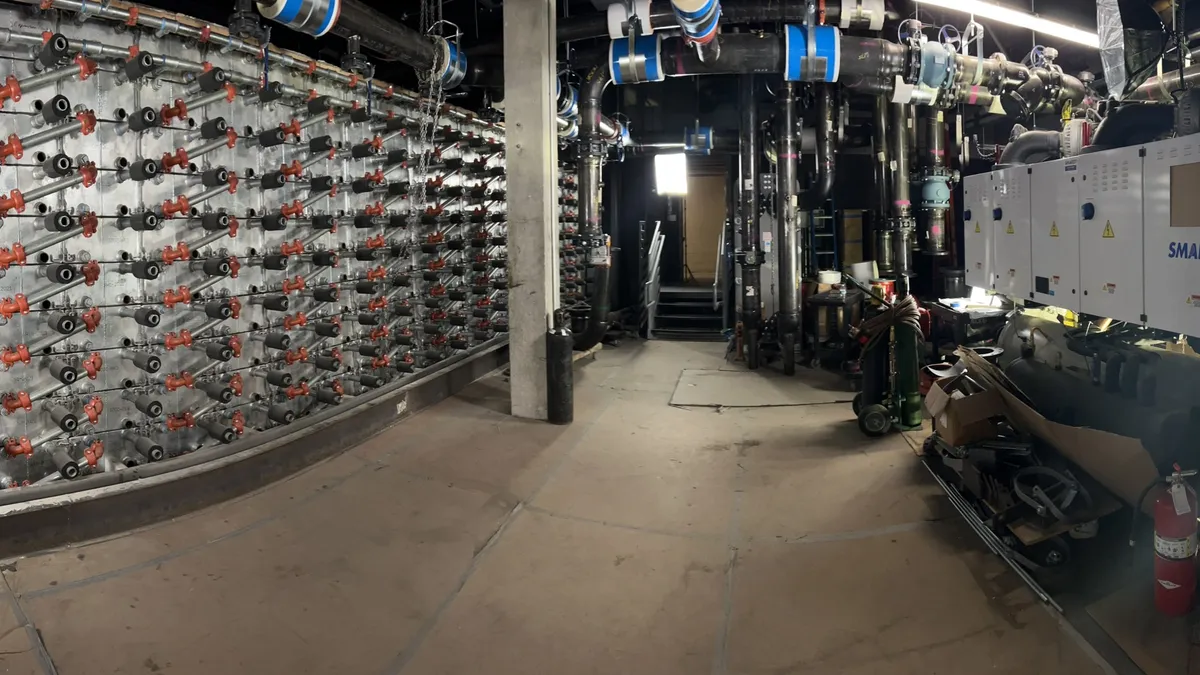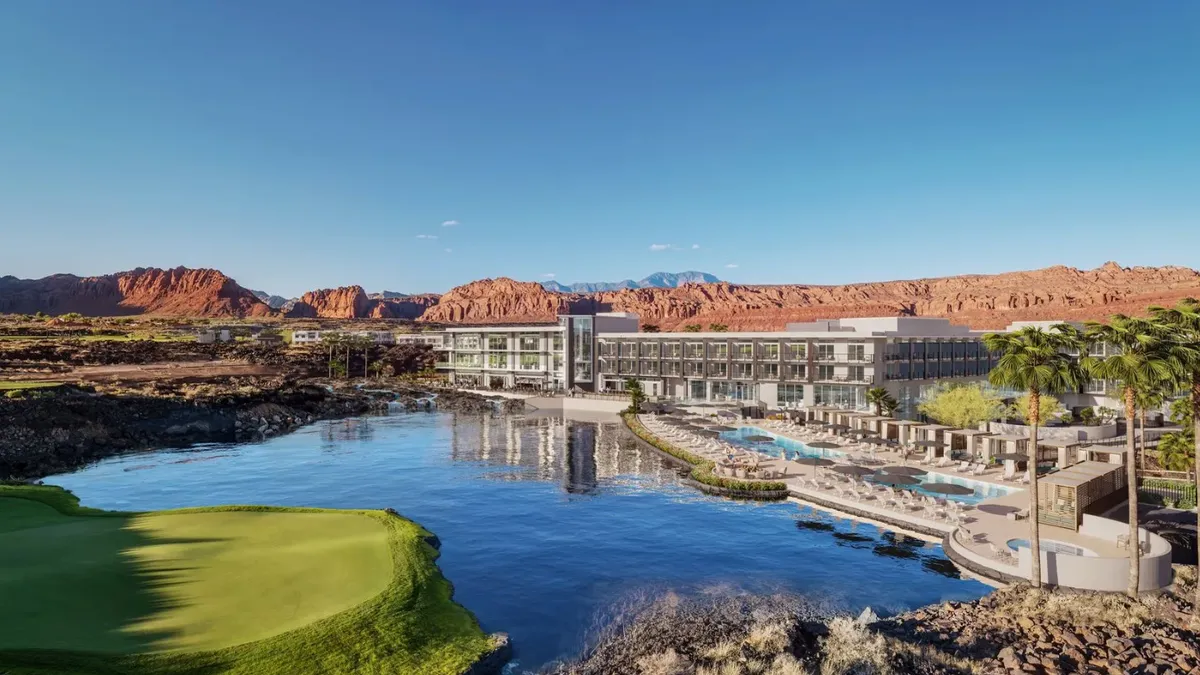Hotel companies have set ambitious climate goals in recent years. In 2018, Hilton announced plans to reduce emissions for its managed hotel portfolio by 75% by 2030. Three years later, Marriott International announced plans to go net zero by 2050. Hotels across the U.S. are investing in green technologies and catering to growing numbers of eco-conscious guests.
But while progress has been made, reaching climate targets will take more than appointing a sustainability team — it will require a “mini revolution” at the company level, Accor Chief Sustainability Officer Brune Poirson said.
Poirson — a former elected official in France’s National Assembly with a track record of fighting for environmental protections — joined Accor in 2021, two years after the company committed to achieving net zero carbon emissions by 2050. While visiting the U.S. for Climate Week in September, Poirson spoke to Hotel Dive about the many strategies Accor has in place to achieve its climate goals, from encouraging bleisure travel to creating sustainable procurement practices.
This interview has been edited for length and clarity.
HOTEL DIVE: How has Accor integrated sustainability and climate concerns into everyday hotel operations?
BRUNE POIRSON: We have a strategy with three key pillars. One is focused on stays, the other one is focused on food and beverage and the last one is what we call “explore,” which is all about exploring the surroundings of the hotel.
The first way we've integrated sustainability into our operations, the “stay” pillar, is through better efficiency and better management of resources. Because 75% of our carbon footprint comes from energy consumption, we want to not only manage it better, but also use greener sources of energy. We’re also focused on better managing water resources, and better managing our operations, which we do through green certifications.
Beyond operations, sustainability is also about slowly changing the way we do business development. It’s about raising capital in a way that makes sustainability a source of financial performance.

Brune Poirson
chief sustainability officer, Accor
The second pillar is all about food and beverage. We serve 200 million meals a year and we have 10,000 bars and restaurants. So the objective is to fight food waste and to change our recipes to lower the carbon footprint of our menus.
The last pillar is all about integrating transportation into how we think about sustainability. [Beyond] operations, sustainability is also about slowly changing the way we do business development. It’s about raising capital in a way that makes sustainability a source of financial performance.
How can hotel companies play a role in transportation emissions? Can they be responsible for how their guests travel?
The CO2 emissions of guests who come to our hotels are not counted in our emissions. However, we believe that we still have a responsibility, and that we should still do something about it. We try to build partnerships with lower-emitting means of transportation — for example, in France, we have a partnership with the national railway company SNCF.
We also develop new streams of business, for example, bleisure. We try to encourage longer stays in our hotels by making sure we have the best infrastructure possible so that people can both work and play, so they stay longer and fly less.
What role does procurement play in Accor’s sustainability strategy?
Procurement is a source of profit as well, so by focusing on sourcing sustainable products and services for our hotels earlier than some of our competitors, we believe we can benefit from being a first mover in that space.
We've built a whole inventory of products and services that are as respectful of the environment as possible, and we have a very detailed set of criteria. We believe that we have a responsibility in helping our suppliers. It's too easy to tell our suppliers, “You should be sustainable.” We want to train them and be as transparent as we can about our criteria. Suppliers who don't want to be part of that journey no longer work with us.
Which areas of your sustainability strategy have already garnered positive results?
One of the first ones we have been setting standards in, for example, is the circular economy. We've been extremely forceful in getting rid of single-use plastics in the guest experience. We got rid of up to 50 different types of single-use plastic products. Now we’re going to focus on the back-of-the-house single-use plastic as well. I think this is not only something to be proud of, but I also think we've set standards for the industry.
We try to encourage longer stays in our hotels by making sure we have the best infrastructure possible so that people can both work and play, so they stay longer and fly less.

Brune Poirson
chief sustainability officer, Accor
The second thing is that we have committed to high, ambitious carbon targets in absolute terms, and we are putting in place a real methodology throughout the company to make sure that we achieve our objectives. This is not only something that the sustainability team works on. It's part of HR, for example, marketing, the procurement team, the business development team. I think this is a mini revolution at the level of the company, whereby we rethink all our processes with reducing our CO2 emissions in mind.
How does Accor think about communicating these sustainability initiatives to guests?
When it comes to sustainability, I think there are different levels of communication, and it's always super tricky, because as hard as we work, the climate is warming faster. So it's very difficult to communicate about all of this, because you don't want to sound like you're doing greenwashing. You also don't want to be celebrating something in a battle that you're losing. We're being super careful compared to some of our competitors, and we don't make a lot of fuss about small pilot projects. We only communicate when we roll out a global strategy that has had concrete impacts.
This year, Accor announced a partnership with the World Monuments Fund to ward against overtourism’s impacts on cultural heritage. What responsibility do hotels have to play in this issue?
Tourism is all about discovering new cultures and new places, and we want to fight the standardization and homogenization of the world. A lot of places are getting slowly destroyed by time and history. We believe that as a travel and tourism company, we have a role to play in making sure that we maintain the identity of a place, and that we work hand in hand with the local community to do so.
How present were travel and hospitality companies at Climate Week?
There is an increasing number of hospitality and travel and tourism actors — public, private, all of that — playing an active role in Climate Week. My feeling is that there is an increasing awareness that tourism and travel is actually a sector of the economy that is critical, and that have a seat at the table. So I think this is a really positive move.

















